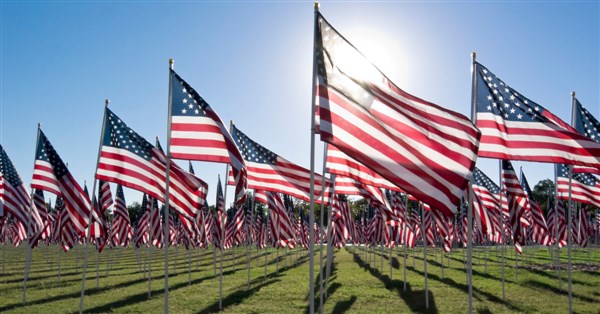Memorial Day: A Brief Snippet of How this Holiday Came To Be

It’s easy to forget the meaning behind Memorial Day when sitting beside a pool or at a cookout with beer in hand, but the day signifies much more than just a three-day weekend. Yes, Memorial Day is synonymous with pools opening and cookouts, the start of summer (unofficially), and of course the beloved three-day weekend most Americans look forward to but what exactly does this day mean? Most Americans are unaware that Memorial Day started as a way to commemorate the deceased of the Civil War, a staggering 620,000 lives lost. After the war, as the North and South where reunited as one the meaning behind Memorial Day took root differently. It wasn’t until after World War II that Memorial Day became a federal holiday, gained its national identify, and was officially given its name in 1968.
The holiday has long been observed on the last Monday in May for decades now but that wasn’t always the case. Initially, Memorial Day was set on May 30 – which, doesn’t always fall on the last Monday in May. The current changes behind the move to the last Monday in May were primarily due to increasing commercialization. Jennifer Mittelstadt, a professor at Rutgers University stated that, “It has everything to do with commerce in the United States", she says. “Travel organizations had been pushing for three-day weekends like this since the 1950s, and they finally got the employee unions on board and the federal employee unions on board because there was a fair amount of agreement that it’d be good for business". The changes enacted in 1971 proved to be popular, ensuring a three-day weekend with a paid holiday, and the current status as the unofficial beginning of summer. These changes came on the hills of a tumultuous time in American history when patriotism and national morale were quite low in the wake of the Vietnam War. With the holiday's move to Monday, it turned the weekend into an occasion for shopping, not just sports and vacations, and helped strengthen the recreation and leisure movement in America.
Today there is great symbolic behavior in America that is collectively felt and expressed during Memorial Day. Feelings that confront the anxiety of death while allowing traditional community parades to provide feelings of exhilaration that mimic a sense of group strength people have felt during war. The sacred meaning behind the day combines recreation and leisure with mourning and ceremonies to express sorrow and unity and historically helped boost morale in America. Visiting grave sites of those who have died during wartime still remains a part of the day and is observed at cemeteries nationwide. The observance of this day is a great time to reflect in remembrance for all the lives lost fighting for our freedom. God bless America!
